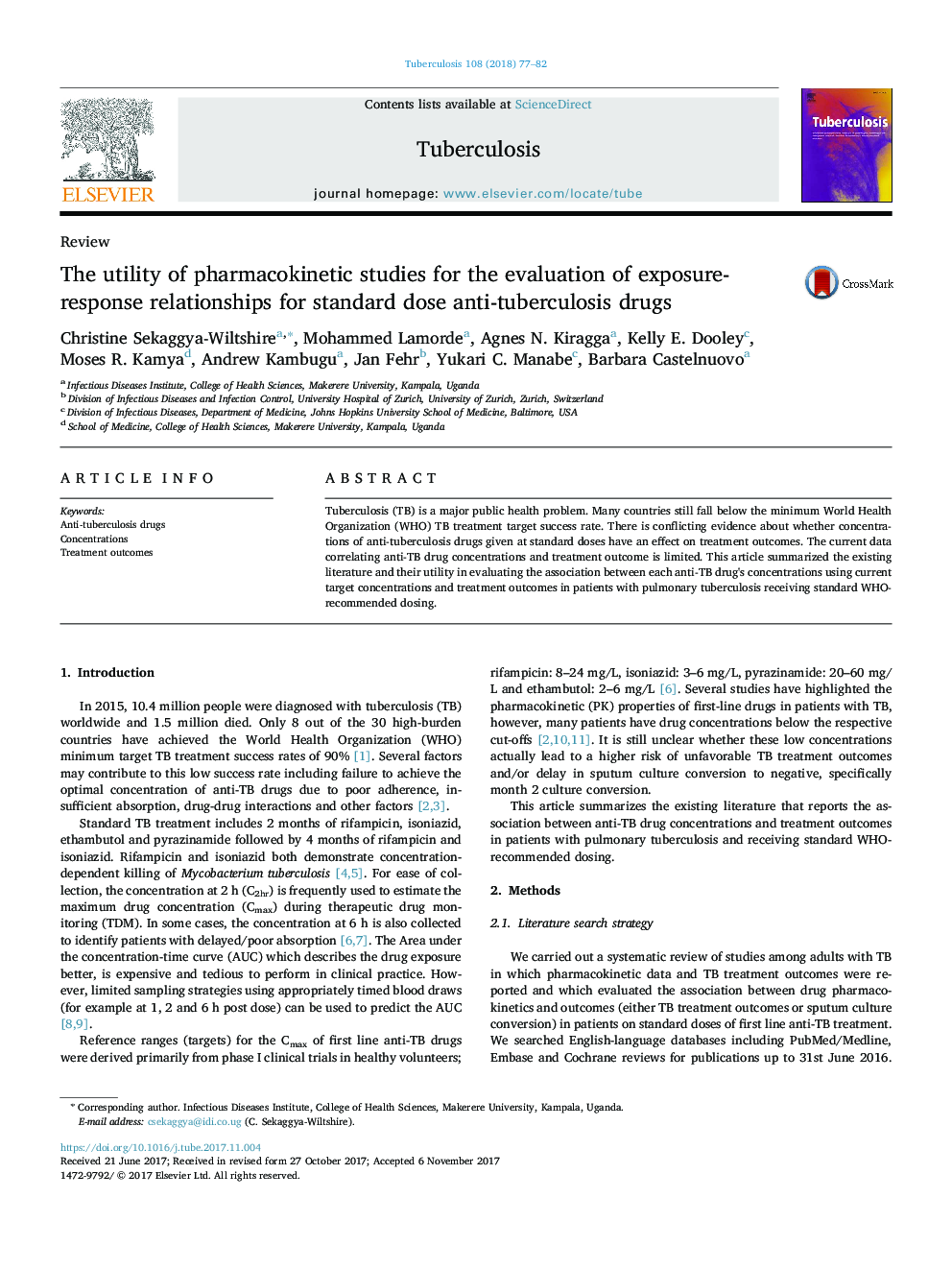| Article ID | Journal | Published Year | Pages | File Type |
|---|---|---|---|---|
| 8485170 | Tuberculosis | 2018 | 6 Pages |
Abstract
Tuberculosis (TB) is a major public health problem. Many countries still fall below the minimum World Health Organization (WHO) TB treatment target success rate. There is conflicting evidence about whether concentrations of anti-tuberculosis drugs given at standard doses have an effect on treatment outcomes. The current data correlating anti-TB drug concentrations and treatment outcome is limited. This article summarized the existing literature and their utility in evaluating the association between each anti-TB drug's concentrations using current target concentrations and treatment outcomes in patients with pulmonary tuberculosis receiving standard WHO-recommended dosing.
Related Topics
Life Sciences
Immunology and Microbiology
Applied Microbiology and Biotechnology
Authors
Christine Sekaggya-Wiltshire, Mohammed Lamorde, Agnes N. Kiragga, Kelly E. Dooley, Moses R. Kamya, Andrew Kambugu, Jan Fehr, Yukari C. Manabe, Barbara Castelnuovo,
